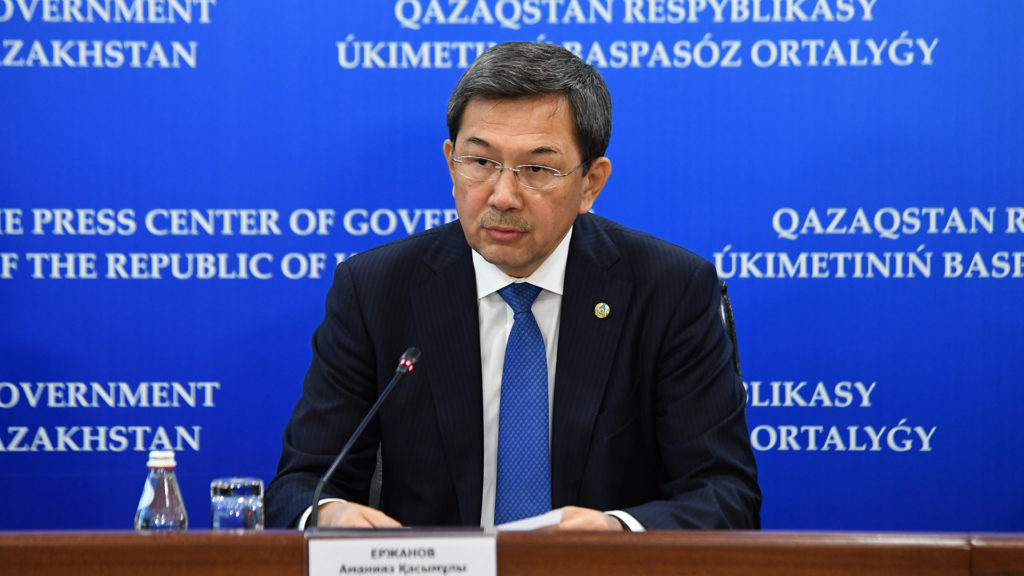NUR-SULTAN – One-hundred-fourteen projects worth approximately 276 billion tenge (US$715.07 million) were implemented and approximately 11,000 jobs created under national industrialisation programmes since 2010, said Kazakh Vice Minister of Industry and Infrastructure Development Amaniyaz Yerzhanov at a Sept. 12 government press conference.

Kazakh Vice Minister of Industry and Infrastructure Development Amaniyaz Yerzhanov. Photo credit: primeminister.kz.
Industrial development is a priority for the Kazakh government, which set out to diversify the economy and boost growth in non-resource sectors with the 2010-2014 State Programme of Accelerated Industrial and Innovative Development. This year, the implementation of the second industrialisation plan under the 2015-2019 State Programme of Industrial and Innovative Development, which prioritises the manufacturing sector, is nearing completion. The concept for the third plan for 2020-2024 is under development.
Industrialisation facilitated new types of production and an expanded range of products for export in Kazakhstan. The country now produces locomotives, transformers, optical instruments, electronic parts, electrical lighting equipment and communication equipment, much of which it exports.
Kazakhstan’s auto industry and railway, agricultural, electrical, mining and oil and gas engineering underwent significant development with Alstom, General Electric, Hyundai and JAC Motors, among other international companies, contributing to their development.
More than 60,000 automobiles were produced in the country last year, half of which were exported to Kyrgyzstan, Russia, Tajikistan and Uzbekistan, and approximately 30,000 vehicles were produced in January-August. The localisation of the country’s automobile industry is approximately 30 percent, noted Kazakh Mechanical Engineers Union Chairman Meiram Pshembayev.
In addition, the country began integrating into global value chains with Silumin-Vostok’s production of Schneider Electric electrical products and Almaty Ventilator Plant’s production of LG Electronics ventilation equipment. In April, Kazakhstan’s KamAZ and Russia’s Petersburg Tractor Plant agreed to cooperate on a number of projects on production, and Hyundai Trans Kazakhstan’s new car production plant was set up.
“This was all achieved thanks to the industrial policy of the state. The government took measures to stimulate the industry, such as value added tax preferences, a programme of preferential lending and leasing and support for the export of products,” said Yerzhanov.
